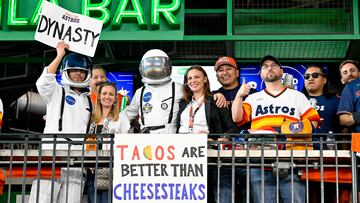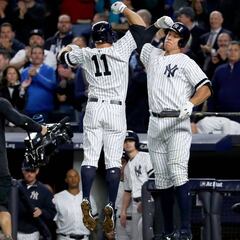MLB teams reluctant to call time on beer sales
With newly implemented rules shortening MLB games by 15%, several teams have extended beer sales into the eighth inning, to both cheers and dismay.


There have been arguments on all sides over the MLB’s new rules for the 2023 season, with criticism and praise, in equal part and equal vitriol, for each new rule. Bigger bases are ridiculed and lauded, as is the shift limitations and pickoff restrictions. But the pitch clock has captured the most attention as the poster boy of everything either wrong or right with the new direction of MLB.
Now there is another wrinkle thrown into the tapestry. Beer sales.
Baseball is America’s national pastime. It has been set apart from other sports for nigh on two centuries. Even when other games are more popular or more profitable, baseball occupies the holiest of holies in the American consciousness.
In the second decade of the twenty-first century, we are now confronted with an uncomfortable truth. Somehow, the religious reverence of Saint Baseball, must learn to co-exist with the Great Satan of capitalism.
Every element of this sport is calculated to squeeze every last drop of money from the public. From the skyrocketing ticket prices, to the insane television deals, to the $15 hot dogs, every single part of the ancillary experience of going to a baseball game is designed to make sure that your money ends up in the owners’ pockets.
MLB games are now 30 minutes quicker than last year.
— Joe Pompliano (@JoePompliano) April 12, 2023
That translates to a loss of $280,000 to $1.1 million in lost beer sales throughout the season, depending on the stadium.
So several teams (Brewers, Twins, Diamondbacks, and Rangers) have already extended their beer sales…
The much-vaunted, and equally-vilified, pitch clock has had a direct result of reducing baseball games by 30 minutes. In a three-hour-plus game, this is at least 15% less time in the stadium. And while this will make television executives and AD/HD-prone Gen Z fans ecstatic, it leaves owners out of pocket by millions of dollars. Why? Again, beer sales.
Traditionally, beer sales account for a huge chunk of the profits made by owners at the old ball game. In an effort to combat drunk driving, most ballparks stopped selling beer in the seventh inning or three-and-a-half-hours after first pitch. Now that seventh inning cutoff is being reached in record time, shortening the window that beer sales were permitted to less than two hours in many cases.
So the owners have responded by lengthening the time that you can buy beer into the eighth inning.
This move, like every other change to our beloved baseball this season, has been met by both cheers and dismay.
The public, already taken aback by just how much baseball they miss when they decide to go buy a beer in the first place, are by and large happy to be able to buy a cold one whenever they want to.
But on the other side of the argument, most recently expressed by Phillies pitcher Matt Strahm in his podcast Baseball Isn’t Boring, is that by extending beer sales, teams are putting the public’s lives at risk.
The always opinionated, insightful @MattStrahm talks with @bradfo about living life as a starter, the problem with the rules and some hypocritical beer policies. @AudacySports
— Baseball Isn’t Boring (@BBisntBoring) April 13, 2023
Listen ➡️https://t.co/hRkQfPGB3i pic.twitter.com/hukfuMGm68
“If the game is going to finish quicker, would we not move the beer sales back to the sixth inning to give our fans time to sober up and drive home?” asked Strahm. “Instead, we’re going to the eighth, and now you’re putting our fans and our family at risk driving home with people who have just drank beers 22 minutes ago.”
The only team to sell beer into the eight inning prior to this season was the Baltimore Orioles. So far in 2023, the Diamondbacks, Rangers, Twins and Brewers have all pushed their beer sales back with the Marlins and Mets saying that they are considering the move.
The Boston Red Sox have announced that they will evaluate the concept, saying “We are still evaluating the impact of new pace of play rules on all elements of the fan experience, including the concession operation. We are still looking to become better educated and will pursue adjustments if deemed appropriate.”
Is this a good or bad move?
— OutKick (@Outkick) April 13, 2023
More MLB teams are extending beer sales through the 8th inning - 15 minutes before people could start driving home, because MLB games are going too fast and they're losing money. https://t.co/l4EtLvIGK6
Of course, the problem with the entire concept of regulating beer sales is that it is not for a baseball park to police drunk driving. Everyone shares that responsibility and groups like Mothers Against Drunk Driving have stated that when alcohol sales were cut off, if ever, was not an issue that concerned them.
Related stories
“If it cuts off sales in the seventh inning, the eighth inning or the ninth inning, that really doesn’t affect our stance because regardless, we just don’t want people to drink alcohol and then drive home from the game,” says regional executive director of MADD, Erin Payton.
And the Houston Astros have taken that to heart, announcing that they will serve alcohol throughout the game, in a move that guarantees their place as the most polemic team in the major leagues.

